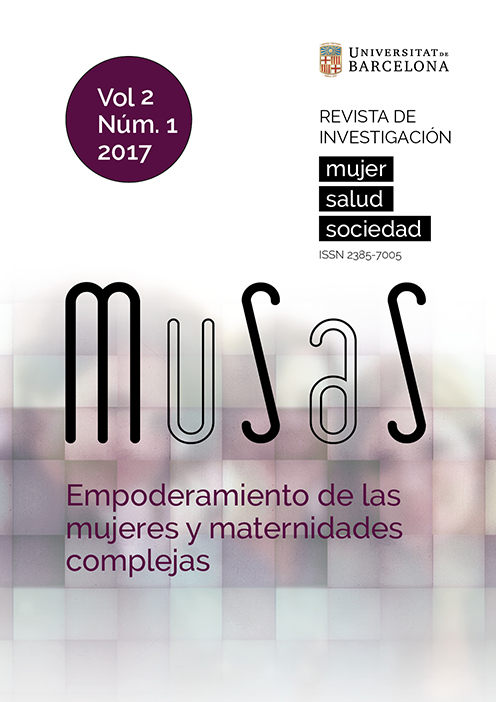SELF-PERCEPTION OF ILLNESS AND RELATIONSHIP WITH HEALTHCARE PROFESSIONALS IN A SAMPLE OF WOMEN WITH PREMENSTRUAL DYSPHORIC DISORDER
DOI:
https://doi.org/10.1344/musas2017.vol2.num1.5Keywords:
premenstrual dysphoric disorder, qualitative interview, health professional-patient relationship, suicidal attempts, hysterectomyAbstract
Objective
To describe the experience of premenstrual dysphoric disorder in a sample of affected patients and to examine their experiences with health professionals.
Materials and methods
Qualitative interviews via Internet were conducted in a non-representative sample of 15 women from different countries diagnosed with the disorder. All gave informed consent prior to participation. The Atlas.ti program was used to aid the coding of the categories that emerged. The information obtained was analyzed and were considered valid according to the criterion of theoretical saturation.
Results
This difficult life experience was reported to cause suicidal thoughts. In the premenstrual phase, the performance of certain daily activities is impossible. It may take a long time for patients to be diagnosed and understood; they feel a lack of comprehension both from their immediate social circle and from the health professionals who treat them. They feel they need more attention, and several individuals consider that hysterectomy maybe the definitive solution to their problems.
Conclusions
The method used yielded information that is not generally obtained via surveys. The repeated references to suffering made by the interviewees evidence the need for greater collective awareness of premenstrual dysphoric disorder, particularly inside the patient’s immediate environment and among health professionals. Attention should be drawn to this disorder and its serious consequences; what is more, it should be acknowledged as a chronic illness.
Downloads
Issue
Section
License
Authors publishing in this journal agree with the following terms:
- Authors hold the copyright, but MUSAS holds the right of first publication.
- Manuscripts will be disseminated with the Creative Commons CC BY-NC license, which allows sharing it with third parties as long as they recognize the authorship, the first publication right held by MUSAS and the license’s conditions






